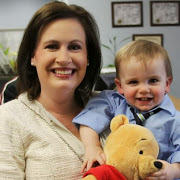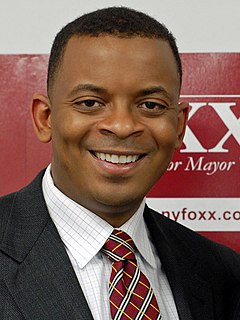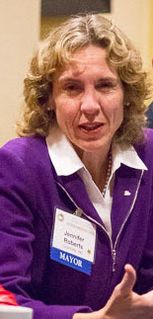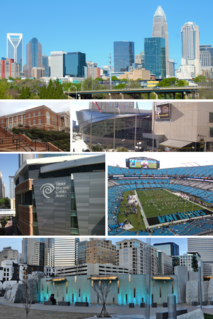
Robert Miller Pittenger is a businessman and American politician who was the U.S. Representative for North Carolina's 9th congressional district from 2013 to 2019. The district includes several outer portions of Charlotte as well as many of that city's southern and eastern suburbs. He is a member of the Republican Party.

Walter H. Dalton is an American attorney and politician who served as the 33rd Lieutenant Governor of North Carolina. A member of the Democratic Party, he served six terms in the state senate before his election to the office of lieutenant governor in 2008.

The Maryland gubernatorial election of 2006 was held on November 7, 2006. It was a race for the Governor and Lieutenant Governor of Maryland. The winning candidates -- Martin O'Malley and Anthony G. Brown, who defeated the incumbent Gov. Robert Ehrlich and running mate Kristen Cox—were elected to serve from 2007 to 2011.

Patricia (Tricia) Ann Cotham is a former member of the North Carolina House of Representatives from the 100th district and congressional candidate. In March 2007, she was appointed by Governor Mike Easley, upon the recommendation of local Democratic Party leaders, to replace state Representative James B. Black, who had resigned.

The 2008 United States Senate election in North Carolina was held on November 4, 2008. The Senate election coincided with the presidential, U.S. House elections, gubernatorial, Council of State, and statewide judicial elections. Incumbent Republican U.S. Senator Elizabeth Dole ran for re-election to a second term, but was defeated by Democrat Kay Hagan. The November general election was the first time in North Carolina history, and only the eighth time in U.S. history, that the two major-party candidates for a U.S. Senate seat were both women. In addition, Hagan became the first Democrat to win this seat since it was won by the Republicans in 1972, and the first woman to defeat an incumbent woman in a Senate election. As of 2019, this is the last Senate election in North Carolina won by a Democrat.

The 2010 United States Senate election in North Carolina was held on November 2, 2010. The filing deadline for the primaries was February 26; the primaries were held on May 4, with a Democratic primary runoff held on June 22. Incumbent Republican U.S. Senator Richard Burr won re-election to a second term. Burr is the first incumbent to win re-election for this seat since Sam Ervin's last re-election in 1968. Burr's 54.8% also represented the highest vote share a North Carolina Republican received since the state began directly electing its Senators.

The biennial Charlotte mayoral election was held on November 3, 2009. The seat was open due to the decision by Mayor Pat McCrory, a Republican, not to seek re-election. Democrat Anthony Foxx, a member of the City Council, won the election by a slim margin, becoming the first Democrat elected to lead the city since Harvey Gantt was re-elected in 1985.

The 2012 North Carolina gubernatorial election took place on November 6, 2012, concurrently with the 2012 United States presidential election, U.S. House election, statewide judicial election, Council of State election and various local elections.
The 2012 United States House of Representatives elections in North Carolina were held on Tuesday, November 6, 2012, to elect the 13 U.S. Representatives from the state of North Carolina. The elections coincided with the U.S. presidential election, N.C. gubernatorial election, statewide judicial elections, Council of State elections and various local elections. Primary elections were held on May 8, 2012; for races in which no candidate received 40 percent of the vote in the primary, runoff elections were held on July 17.
The North Carolina Council of State elections of 2012 were held November 6, 2012 to select the nine officers of the North Carolina Council of State. This election coincided with the U.S. presidential election, U.S. House elections, the gubernatorial election and the statewide judicial elections. Primary elections were held on May 8, 2012; for races in which no candidate received 40 percent of the vote in the primary, runoff elections were held on July 17.
The 2014 United States House of Representatives elections in North Carolina were held on Tuesday, November 4, 2014 to elect the 13 U.S. Representatives from the state of North Carolina, one from each of the state's 13 congressional districts. The elections coincided with other elections to the United States Senate and House of Representatives and various state and local elections, including an election to the U.S. Senate.

The biennial Charlotte mayoral election was held on Tuesday, November 5, 2013. Primary elections were held on Tuesday, September 10, 2013. Unaffiliated voters were allowed to vote in either the Democratic or Republican primary.

The 2016 North Carolina gubernatorial election was held on November 8, 2016, to elect the Governor of North Carolina, concurrently with the 2016 U.S. presidential election, as well as elections to the United States Senate and elections to the United States House of Representatives and various state and local elections.
The 2015 Charlotte mayoral election took place on November 3, 2015, to elect the Mayor of Charlotte, North Carolina. Mayoral elections in Charlotte are biennial, with the winner being sworn-in in December.

The 2016 United States House of Representatives elections in North Carolina were held on November 8, 2016, to elect the 13 U.S. Representatives from the state of North Carolina, one from each of the state's 13 congressional districts. The elections coincided with the 2016 U.S. presidential election, as well as other elections to the House of Representatives, elections to the United States Senate and various state and local elections.

Jennifer Watson Roberts is an American politician, businesswoman and former diplomat who served as the 58th mayor of Charlotte, North Carolina. She was elected on November 3, 2015 having previously served four terms on the Mecklenburg County Board of Commissioners. In 2012, she was the Democratic nominee for the United States House of Representatives in North Carolina's 9th congressional district.
The 2020 United States Senate election in North Carolina will be held on November 3, 2020, to elect a member of the United States Senate to represent the State of North Carolina, concurrently with the 2020 U.S. presidential election, as well as other elections to the United States Senate in other states and elections to the United States House of Representatives and various state and local elections.
The 2018 United States House of Representatives elections in North Carolina were held on November 6, 2018, electing the thirteen U.S. Representatives from the State of North Carolina, one from each of the state's congressional districts. The elections coincided with other elections to the House of Representatives, as well as elections to the United States Senate and various state and local elections.
The 2017 Charlotte mayoral election took place on Tuesday, November 7, 2017. Party primary elections were held on Tuesday, September 12, 2017. Second-round primaries would have been held on Tuesday, October 10, 2017, if they had been necessary, but both primary winners received more than the minimum 40 percent of the vote needed to avoid a runoff. The incumbent, Democrat Jennifer Roberts, was eligible to run for a second two-year term. She ran but lost the Democratic nomination in the primary. Two members of the City Council, Democrat Vi Lyles and Republican Kenny Smith, won the primaries and advanced to face each other in the general election. Vi Lyles defeated Kenny Smith in the general election, and became the 59th mayor of Charlotte, North Carolina.
















